Pas de biographie disponible.
Compositeur Musique additionelle Librettiste Parolier Metteur en scène Chorégraphe Producteur création Producteur version
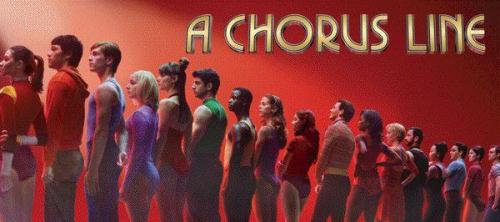
Musical
Musique: Marvin Hamlisch • Paroles: Edward Kleban • Livret: James Kirkwood • Nicholas Dante • Production originale: 10 versions mentionnées
Dispo: Résumé Synopsis Commentaire Génèse Liste chansons
Vidéos:
Pendant très longtemps, A Chorus Line a été le musical le plus joué à Broadway. Si passer une audition (ou parler en public) vous a toujours terrorisé, passez votre chemin! A Chorus Line décrit le parcours semé d'embûches, la mise à nu, de futures stars… ou de simples membres de la troupe. Récit d'un sacerdoce.
Genèse: The musical was formed from several taped workshop sessions with Broadway dancers, known as "gypsies," including eight who eventually appeared in the original cast. The sessions were originally hosted by dancers Michon Peacock and Tony Stevens. The first taped session occurred at the Nickolaus Exercise Center on January 26, 1974. They hoped that they would form a professional dance company to make workshops for Broadway dancers. Michael Bennett was invited to join the group primarily as an observer, but quickly took control of the proceedings. Although Bennett’s involvement has been challenged, there has been no question about Kirkwood and Dante’s authorship. In later years, his claim that A Chorus Line had been his brainchild resulted in not only hard feelings but a number of lawsuits as well.[2] During the workshop sessions, random characters would be chosen at the end for the chorus jobs, resulting in genuine surprise among the cast. Subsequent productions, however, have the same set of characters winning the slots.[3] Marvin Hamlisch, who co-wrote "A Chorus Line's" winning score, recalls how in its first previews, audiences seemed put off by something in the story. Actress Marsha Mason told Bennett that Cassie (Donna McKechnie), because she did everything right, should win the part and not lose. Bennett changed it so that Cassie would win the part.[4] Original production A Chorus Line opened Off Broadway at The Public Theater on April 15, 1975. At the time, the Public did not have enough money to finance the production. They borrowed $1.6 million in order to produce the show. The show was directed and co-choreographed (with Bob Avian) by Bennett. Advance word had created such a demand for tickets that the entire run sold out immediately. Producer Joseph Papp moved the production to Broadway, and on July 25, 1975 it opened at the Shubert Theatre, where it ran for 6.137 performances until April 28, 1990. The production was nominated for 12 Tony Awards, winning nine: Best Musical, Best Musical Book, Best Score (Hamlisch and Kleban), Best Director, and Best Choreography, Best Actress (McKechnie), Best Featured Actor (Sammy Williams), Best Featured Actress (Bishop) and Best Lighting Design. The show won the 1976 Pulitzer Prize for Drama, one of the few musicals ever to receive this honor, and the New York Drama Critics' Circle Award for Best Play of the season. In 1976, many of the original cast went on to perform in the Los Angeles production. Open roles were recast and the play was again reviewed as the "New" New York Company which included Ann Reinking, Sandahl Bergman, Christopher Chadman, Justin Ross (who would go on to appear in the film), and Barbara Luna. When it closed, A Chorus Line was the longest running show in Broadway history[8] until its record was surpassed by Cats in 1997 and Les Misérables and The Phantom of the Opera in 2002. On September 29, 1983, Bennett and 330 A Chorus Line veterans came together to produce a show to celebrate the musical becoming the longest-running show in Broadway history.[9] A Chorus Line generated $277 million USD in revenue and had 6.5 million Broadway attendees. Since its inception, the show's many worldwide productions, both professional and amateur, have been a major source of income for The Public Theater. By 1991, four of the five original creators had died; Bennett, Kirkwood, and Dante from complications of AIDS-related diseases, and Kleban from cancer. Subsequent productions U.S. and international tours were mounted in 1976, including a run in Los Angeles at the Shubert Theatre in Century City. A London production opened in the West End at the Theatre Royal Drury Lane in 1976. It ran for several years. Jane Summerhays and Geraldine Gardner (aka Trudi van Doorn of the Benny Hill Shows), played Sheila in the London production. The production won the Laurence Olivier Award as Best Musical of the Year 1976, the first year in which the awards were presented. Joan Illingworth was also down to the last two to appear. The Broadway revival opened at the Gerald Schoenfeld Theater on October 5, 2006 following a run in San Francisco. The revival closed on August 17, 2008 after 759 performances and 18 previews. It cost $8 million to finance and made back its investment in 19 weeks. The production was directed by Bob Avian, with the choreography reconstructed by Baayork Lee, who had played Connie Wong in the original Broadway production. The opening night cast included Paul McGill, Michael Berresse, Charlotte d'Amboise, Mara Davi, James T. Lane, Heather Parcells, Alisan Porter, Jason Tam, Jessica Lee Goldyn and Chryssie Whitehead. On April 15, 2008 Mario Lopez joined the cast as the replacement for Zach. The production received two Tony Award nominations in 2007 for Featured Role (Charlotte d'Amboise) and Revival (Musical). The original contract for A Chorus Line provided for sharing the revenue from the show with the directors and dancers that had attended the original workshop sessions. However, the contract did not specify revenue when the musical was revived in 2006. In February 2008, an agreement was reached with the dancers and Michael Bennett's estate.
Résumé: L’action se situe à Broadway où une audition de la plus haute importance est organisée par Zach (chorégraphe et metteur en scène) et son assistant Larry. Plusieurs centaines de danseurs s’affrontent ; seize sont retenus. Dès lors, huit filles et huit garçons se mettent à nu devant un metteur en scène distant qui juge leur talent, leur personnalité, leur vie. Chacun se raconte, se dévoile. Pourtant, il ne peut en rester que huit. Quels seront-ils ?
Création: 25/7/1975 - Shubert Theatre (Broadway) - 6137 représ.
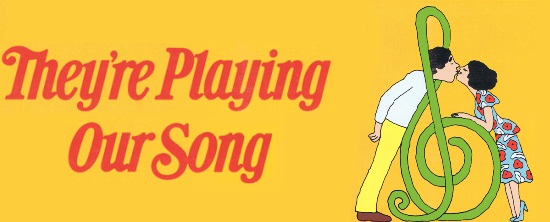
Musical
Musique: Marvin Hamlisch • Paroles: Carole Bayer • Livret: Neil Simon • Production originale: 2 versions mentionnées
Dispo: Synopsis Commentaire Génèse Liste chansons
Genèse: Produced by Emanuel Azenberg, the musical had its world premiere at the Ahmanson Theatre in Los Angeles in December 1978. After eleven previews, the Broadway production, directed by Robert Moore, choreographed by Patricia Birch, and starring Robert Klein and Lucie Arnaz (in her Broadway debut), opened on February 11, 1979 at the Imperial Theatre, where it ran for 1,082 performances. Ann Roth designed the costumes and lighting was by Tharon Musser. Notable cast replacements included Tony Roberts, Stockard Channing, Victor Garber, Anita Gillette, and Ted Wass. The 1st U.S. national tour production opened in 1979 with Victor Garber and Ellen Greene. The West End production opened on October 1, 1980 at the Shaftesbury Theatre with Tom Conti and Gemma Craven, who won a Laurence Olivier Award for her performance. Among the "Inner Voices" was Deena Payne. Notable replacements during its original London run included Martin Shaw. It closed on May 8, 1982. A London cast recording was released on the Chopper label. The original Australian production opened on August 23, 1980 at the Theatre Royal in Sydney. It starred John Waters and Jacki Weaver, with Rhonda Burchmore as one of the "Inner Voices." An Australian Cast Recording was released by Festival Records. The Argentinian production opened in 1980, it starred Valeria Lynch and Victor Laplace, in 1992 they starred a new production. Argentinian cast recording was released by Philips. The Singapore Repertory Theater production opened in the Philippines, from July 2000 to August 13. It starred Tony Award winner Lea Salonga as Sonia and Singaporean actor Adrian Pang as Vernon. The musical ran in the AFP Theatre. A London revival opened at the Menier Chocolate Factory on August 4, 2008 to mixed reviews and closed on September 28. It starred How Do You Solve a Problem Like Maria? winner Connie Fisher and Alistair McGowan. A Brazilian production will open on March 2009, starring Tadeu Aguiar and Amanda Acosta. An Australian production has just concluded at St. Jude's in Brighton, Adelaide, South Australia. On August 30, 2010 Seth Rudetsky and Sutton Foster starred in a one-night only Actors Fund Benefit performance of the show at the Gerald W. Lynch Theatre.
Résumé:
Création: /12/1978 - Ahmanson Theatre (Los Angeles) - représ.

Musical
Musique: Marvin Hamlisch • Paroles: Howard Ashman • Livret: Howard Ashman • Production originale: 1 version mentionnée
Dispo: Synopsis Génèse Liste chansons
Genèse: Original Film The original 1975 film was directed by Michael Ritchie with a screenplay by Jerry Belson. It starred Barbara Feldon as Brenda DiCarlo, Nicholas Pryor as Andy DiCarlo (Brenda's husband in the film), Bruce Dern as Big Bob Freelander, Geoffrey Lewis as Wilson Shears, Joan Prather as Robin Gibson, Annette O'Toole as Doria Hudson, Melanie Griffith as Karen Love, and choreographer Michael Kidd as Tommy French. The movie was filmed on location in Santa Rosa, California with the pageant festivities at Veteran's Memorial Auditorium. Production The original production opened on Broadway on November 24, 1986 at the Lunt-Fontanne Theatre and closed on January 3, 1987 after 48 performances. It was directed by Ashman with musical staging by Mary Kyte. It received a Tony Award nomination for Best Book of a Musical as well as Drama Desk Award nominations for Outstanding Featured Actor in a Musical (Michael O'Gorman) and Outstanding Costume Design (William Ivy Long). Smile chronicles the backstage troubles of the fictional 1985 California Young American Miss beauty pageant held in Santa Rosa, California. The main characters include Robin Gibson and Doria Hudson, two contestants who befriend and help each other throughout the week; Brenda DiCarlo Freelander, an ex-Young American Miss second-runner-up coordinating the pageant; and Brenda's husband Big Bob, an RV Salesman trying to help her through the week. Smile is considered a "lost" musical because no official cast recording was ever made. However, there does exist a demo CD which is a primary source for groups performing the show. Some of the songs from the show, "Disneyland," "Smile," and "In Our Hands," received their first recordings on Bruce Kimmel's Unsung Musicals album, released by Varese Sarabande. "Disneyland" was sung by Jodi Benson, who originated it in the show. On a subsequent volume Maria's Song was also recorded. In November 2008, the record label PS Classics rectified this loss, releasing the album Howard Sings Ashman. The second disc is comprised completely of songs from Smile, sung by Ashman and Hamlisch, with Hamlisch at the piano. They also put a transcript of a taped conversation between Ashman, Hamlisch and Bob Fosse discussing the development of the musical on their website. Subsequent activity After the Broadway production of Smile flopped, Ashman and Hamlisch revised the show for stock productions. Book changes include the change of Shawn's roommate from Connie-Sue to Maria, and the addition of some material for Bob. The score was further revised, gaining a completely re-structured opening number (though retaining most of the original melody and words), a new song for Brenda ("Very Best Week of Your Lives") that completely replaced the Orientation Sequence musically, a new song for Bob (Bob's Song), a new number for the winner of the pageant (There Goes the Girl) and a completely new melody and lyric set for Robin's letters home and a slight decrease in the time given to them. The ending was also re-worked giving Bob a significant musical section new to the revised version. Many of the small lyric changes to the licensed version actually originated before the Broadway production. When reading Lincoln Center's photocopy of the Broadway rehearsal script to Smile, many of the licensed lyrics are printed but scratched out and replaced with what was sung at the Lunt-Fontanne, handwritten. An hour-long recording of the licensed version was made for Samuel French (the licensing agent) to distribute to groups interested in performing Smile. It uses many of the original Broadway cast, including Marsha Waterbury, Jodi Benson, Anne Marie Bobby, Tia Riebling and Dick Patterson. Director and author Howard Ashman played the role of Big Bob in Jeff McCarthy's absence. This recording is often referred to incorrectly as an unreleased cast recording when it is in fact a demo.
Résumé:
Création: 24/11/1986 - Lunt-Fontanne Theatre (Broadway) - représ.
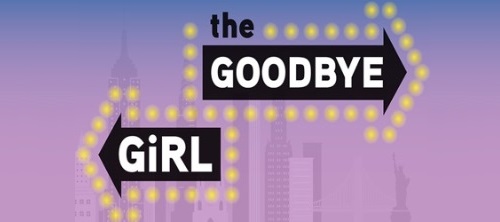
Musical
Musique: Marvin Hamlisch • Paroles: David Zippel • Livret: Neil Simon • Production originale: 1 version mentionnée
Dispo: Résumé Synopsis Génèse Liste chansons
Genèse: The Goodbye Girl opened in out-of-town tryouts at the Shubert Theatre, Chicago, from December 29, 1992 to January 30, 1993. The original director, Gene Saks, was fired during the Chicago try outs and replaced by Michael Kidd. During the try outs, a new opening song was put in, sung by Bernadette Peters as Paula and Tammy Minoff as her daughter Lucy. "An exuberant song about their hoped-for move to California from New York City, it's meant to help Paula lighten up; in the first act, she has been perceived as a drip." Ticket sales were "brisk" for the Chicago run and the musical had a $10 million advance for Broadway. The musical, directed by Michael Kidd and choreographed by Graciela Daniele, opened on Broadway at the Marquis Theatre on March 4, 1993 and closed on August 15, 1993 after 188 performances and 23 previews. The opening cast included Bernadette Peters as Paula McFadden and Martin Short as Elliot Garfield, with Carol Woods as Mrs. Crosby and Tammy Minoff as Lucy. This musical marked Martin Short's Broadway debut. The musical was produced at the Marriott Theatre, Lincolnshire, Illinois, in February through April 1994. This version featured some modifications by lyricist David Zippel, who also co-directed the production. This represents the version preferred by the authors and is currently licensed by the licensing agent, MTI. After several previews, a revised version (with new lyrics by Don Black) opened on April 17, 1997 at the Albery Theatre in the West End, and closed on June 28, 1997. It starred Gary Wilmot and Ann Crumb. The new lyrics in this production were not well received. Wilmot subsequently toured the UK in 1997 and 1998 opposite Marti Webb, Sophie McShera (alternating with Hannah Chick) as Lucy, Hope Augustus as the landlady, Steve Elias and West End veteran Katie Verner.
Résumé: Paula has been dumped by latest boyfriend, seemingly a regular feature of her life. She and Lucy, her 11 year old daughter, are threatened with eviction because her departing boyfriend has rented out their apartment to an off-Broadway actor called Elliot Garfield. Elliot agrees she can temporarily share the space with him, as he is out most of the time rehearsing the role of a gay transvestite Richard III. This odd couple bicker and squabble, commented on by Mrs Crosby, the landlady, but, inevitably they fall in love. The show ends with a Busby Berkeley-type dance-sequence on the rooftop, involving champagne and (for some unexplained reason!) a chorus of dancing girls and boys in sequins.
Création: 4/3/1993 - Marquis Theatre (Broadway) - représ.
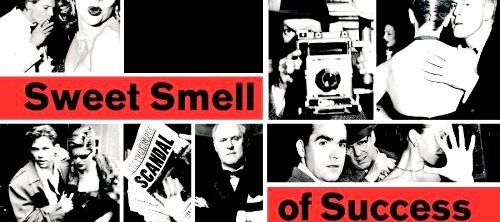
Musical
Musique: Marvin Hamlisch • Paroles: Craig Carnelia • Livret: John Guare • Production originale: 1 version mentionnée
Dispo: Synopsis Génèse Liste chansons
Genèse: A workshop was held in Toronto, Canada in August 1998. According to a Livent spokesman "the show had a cast of 18, made up mainly of Canadians. The performers' names were not revealed." The workshop was directed by Nicholas Hytner. The workshop was followed by a reading in November 1998 in New York City, with Jonathan Pryce as J.J. Hunsecker, Brian d'Arcy James as Sidney, Anastasia Barzee, Patrick Wilson, Stacey Logan and an ensemble of 12. It then had a pre-Broadway tryout in Chicago, Illinois, in January 2002. The musical opened on March 14, 2002 at the Martin Beck Theatre on Broadway. Again directed by Hytner, it closed on June 15, 2002, after 109 performances and 18 previews. The show starred John Lithgow as J.J. Hunsecker, and Brian d'Arcy James as Sidney Falcone. The creative team included choreography by Christopher Wheeldon, sets and costumes by Bob Crowley, and lighting by Natasha Katz. Sweet Smell garnered 7 Tony Award nominations including Best Musical. John Lithgow received the show's only Tony Award, winning Best Performance by a Leading Actor in a Musical.
Résumé:
Création: 14/3/2002 - Al Hirschfeld Theatre (Broadway) - 109 représ.
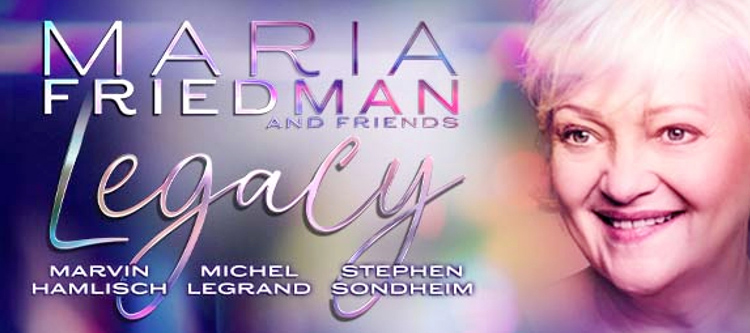
Concert
Musique: Marvin Hamlisch • Michel Legrand • Stephen Sondheim • Paroles: Livret: Production originale: 1 version mentionnée
Dispo: Résumé Commentaire
Maria Friedman célébre le génie de Marvin Hamlisch, Michel Legrand et Stephen Sondheim. Friedman a joué avec chacun plusieurs fois, devenant un interprète très apprécié de leurs œuvres. Maintenant avec des amis anciens et nouveaux, elle explore l'héritage de ces titans du théâtre musical du XXe siècle.
Genèse:
Résumé: En collaboration avec ses amis, directeur musical et pianiste, Theo Jamieson, et avec ses collègues interprètes Matthew White, Ian McLarnon, Alfie Friedman et Desmonda Cathabel, et une chorale de la Royal Academy of Music, ce spectacle promet d'être une célébration digne de certains des les plus grands compositeurs du XXe siècle. Jamieson sera accompagné de Paul Moylan à la contrebasse et James Powell aux percussions.
Création: 3/3/2022 - Menier Chocolate Factory (Londres) - représ.